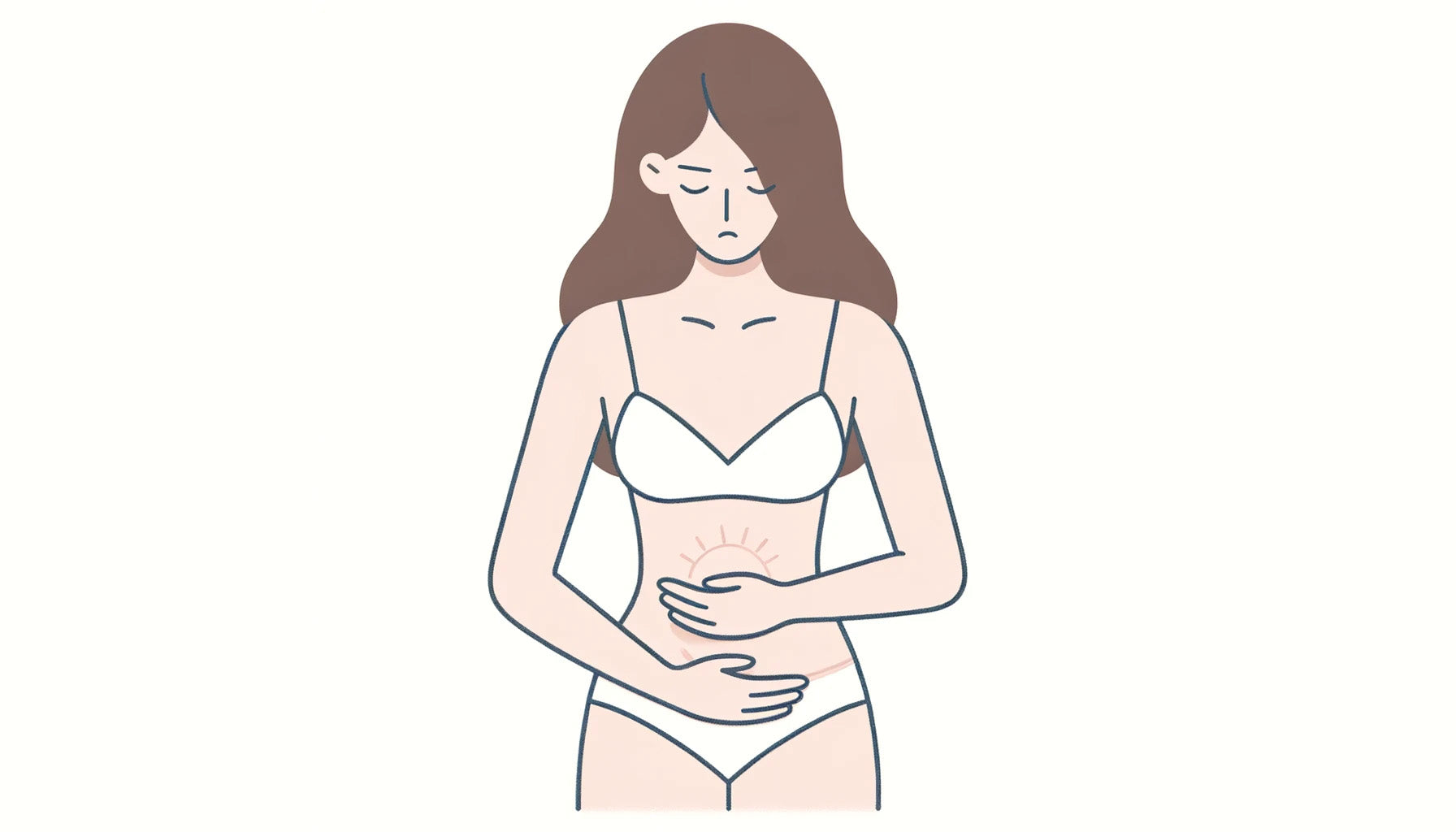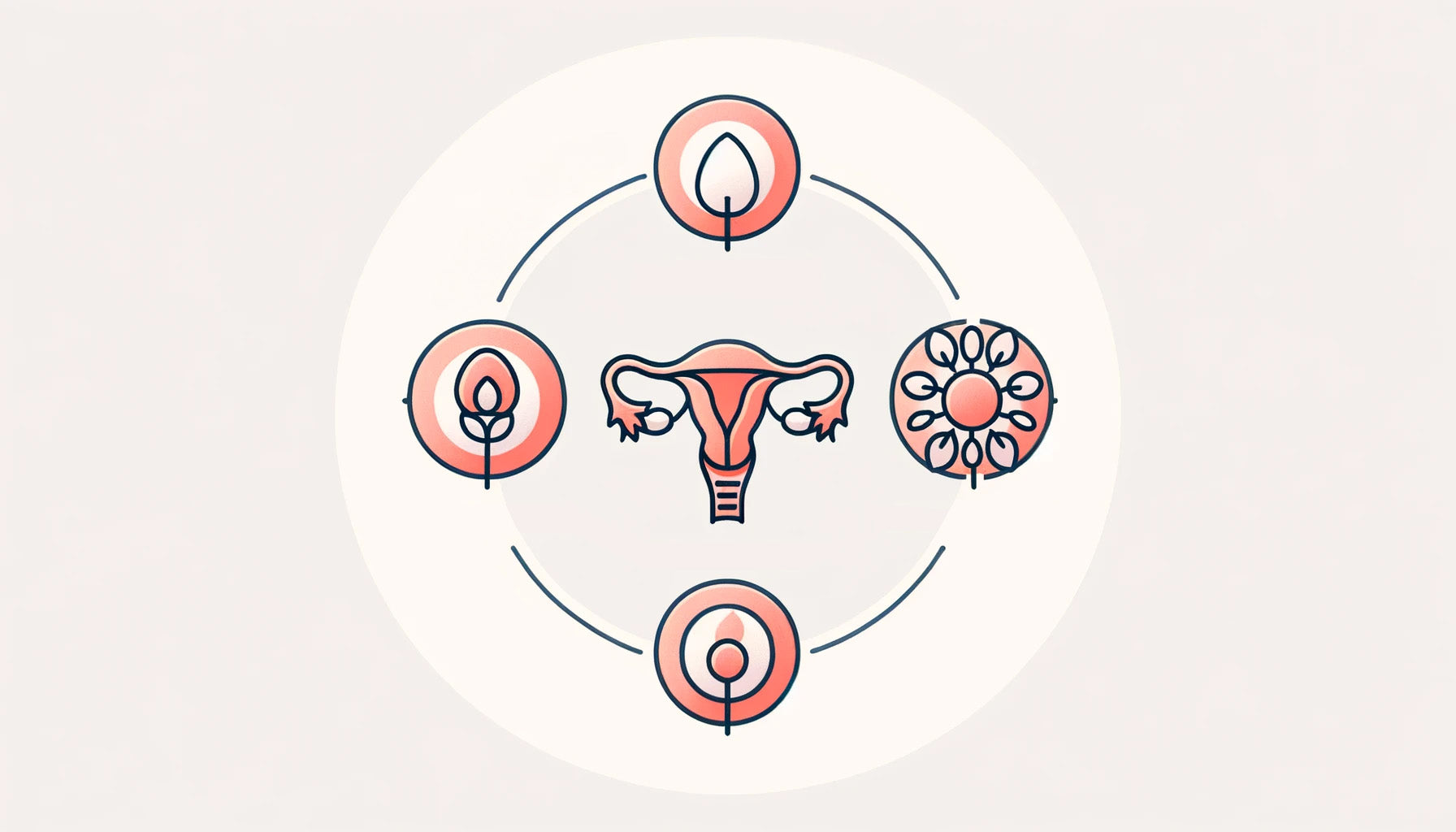Ovulation typically occurs around the middle of your menstrual cycle, though this can vary, especially if you have a condition like PCOS. If you experience irregular periods, it's often because ovulation is happening earlier or later than usual — or sometimes not at all.
This phase is often referred to as your "inner summer" because your body heats up, both physically and emotionally. Around ovulation, your temperature rises, and your sex drive often increases. Here, we'll explore the role of ovulation in fertility and how the release of just one small egg can have a wide impact on your body.
Important Insights
- Estrogen Peaks: Estrogen levels are at their highest right before ovulation, when the egg has fully matured.
- Ovulation Symptoms: This estrogen surge can cause symptoms like breast tenderness or ovulation pain in some people.
- LH Surge: When the egg is ready, a surge in luteinizing hormone (LH) triggers its release down the fallopian tube, marking ovulation.
- Fertile Window: The days leading up to ovulation are when you're most fertile, making this the ideal time for conception if you're trying to get pregnant.
- Testosterone Boost: Around ovulation, testosterone levels rise, which may explain increased libido and energy.
Understanding Ovulation
Ovulation is when an egg is released from the ovaries and travels down the fallopian tube. Leading up to this, follicles in the ovaries grow and produce more estrogen. This estrogen peak signals that the egg is ready, prompting the body to release a surge of LH, which initiates ovulation.
The days before and during ovulation are your most fertile, with physical signs like thinner, wetter cervical mucus and a softer, higher cervix to aid sperm in reaching the egg. After ovulation, you'll notice a rise in basal body temperature, which can help confirm that ovulation has occurred if you're tracking it daily.
How ovulation feels
During this fertile window, your libido is likely to peak. This increase in sex drive is linked to higher testosterone and estrogen levels. If you're trying to conceive, this is the perfect time to be sexually active, but if you're not ready for pregnancy, take extra precautions during this phase.
Ovulation may also bring heightened confidence and communication skills, making it a good time to take on challenges like presentations or big projects at work. However, the hormone shift can come with downsides. Some people experience breast tenderness or discomfort during ovulation, and after the egg is released, a dip in estrogen and a rise in progesterone may leave you feeling tired and more sensitive.
Self Care Around Ovulation
Exercise: The increased testosterone during ovulation can improve muscle recovery and strength, making this a great time to focus on strength training or more intense workouts.
Diet: Since high estrogen can cause symptoms like breast tenderness and skin issues, it's a good time to incorporate foods that support estrogen detoxification, such as kale, broccoli, garlic, radishes, and onions. Omega-3 fatty acids are also important during this phase, especially for those trying to conceive, as they can support egg implantation and fertility. Even if pregnancy isn’t on your mind, omega-3s benefit brain function and skin health.
Pleasure: Ovulation is a great time to indulge in self-pleasure or intimacy with a partner. If you're trying to conceive, it's easy to feel stressed during this time, so remember to relax and enjoy the process. As ovulation transitions into the luteal phase, it's important to pace yourself—don't overexert during the high-energy phase, and make sure to rest to avoid burnout as you enter the more introspective luteal phase.





